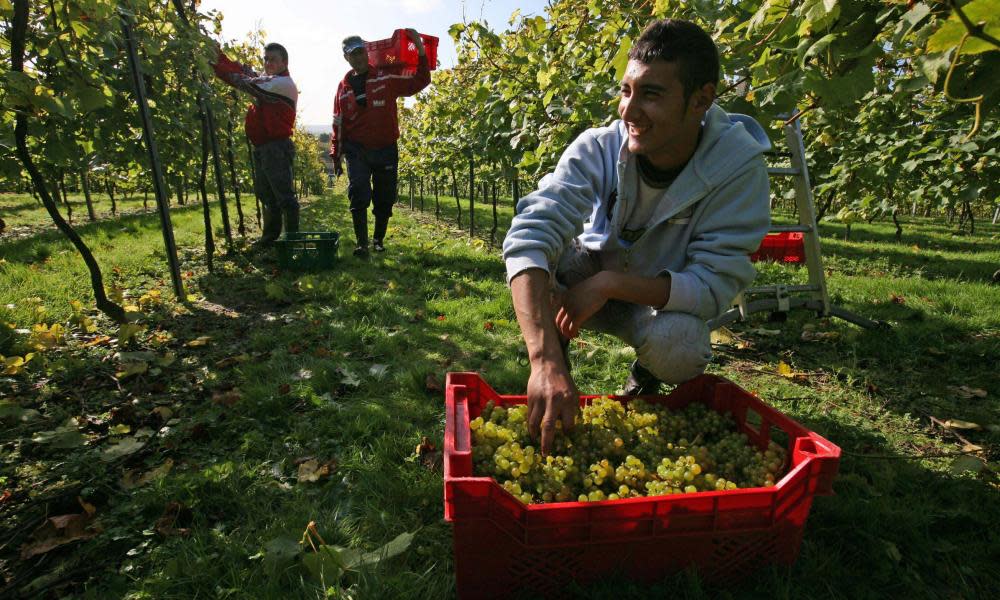Farmers deliver stark warning over access to EU seasonal workers

Farmers have warned that food will “rot in the fields” and Britain will be unable to produce what it eats if the government cannot guarantee that growers will continue to have access to tens of thousands of EU workers after Brexit.
Meurig Raymond, president of the National Farmers’ Union, told the body’s annual conference in Birmingham that farmers and food processors, particularly in horticulture and poultry, were already having difficulty recruiting.
The value of the pound, which reduces the value of pay seasonal workers send home to EU countries, and uncertainty over longer-term UK residency rights are discouraging workers from eastern Europe. High levels of employment in countries such as Romania and Bulgaria are also squeezing the supply of workers.
The NFU said it needed government to help encourage workers from elsewhere to come to the UK to help with jobs like strawberry-picking and processing chicken.
Raymond said the industry would require 90,000 seasonal workers a year by 2021, on top of more than 250,000 permanent workers – more than three-quarters of whom now come from the EU.
He said that if just one in five permanent workers decided to go home an additional 50,000 staff would be needed, on top of the 85,000 seasonal workers currently required.
“Quite simply, without a workforce – permanent and seasonal – it wouldn’t matter what a new trade deal [with the EU] looks like. Food will rot in the fields and Britain will lose the ability to produce and process its own food.”
However, Andrea Leadsom, secretary of state for the environment, food and rural affairs, told farmers at the conference they should invest in machinery to boost productivity and there was a need to find “the right balance” for both new and current EU workers.
“We must not forget that a key motivating factor behind the vote to leave the EU was to control immigration,” she said.
Leadsom said investment in improving productivity with technology would be part of the answer: “As I’ve travelled the UK, I’ve seen a whole raft of new technologies that complement the workforce.” She added there were “large number of farmers that are yet to seize these opportunities”.
Raymond told the Guardian that it was possible that robotics and other technology could help farmers reduce their reliance on labour. In its Feeding the Future report (pdf) published on Tuesday, the NFU put investment in labour-saving technology at the top of its agenda and said farmers were increasingly interested in the likes of mechanical harvesting of field vegetables, driverless tractors and robotics.
But Raymond said improving productivity with technology required heavy up-front costs and government needed to support that investment with grants, tax allowances or cheap loans. He said retailers and food processors must also offer longer-term contracts and guaranteed prices so that farmers could invest for the future.
He added: “A lot of the work, whether in horticulture, poultry or livestock processing is very manual. Yes there is automation and new technology but it is a people-based business.”

 Yahoo News
Yahoo News 
